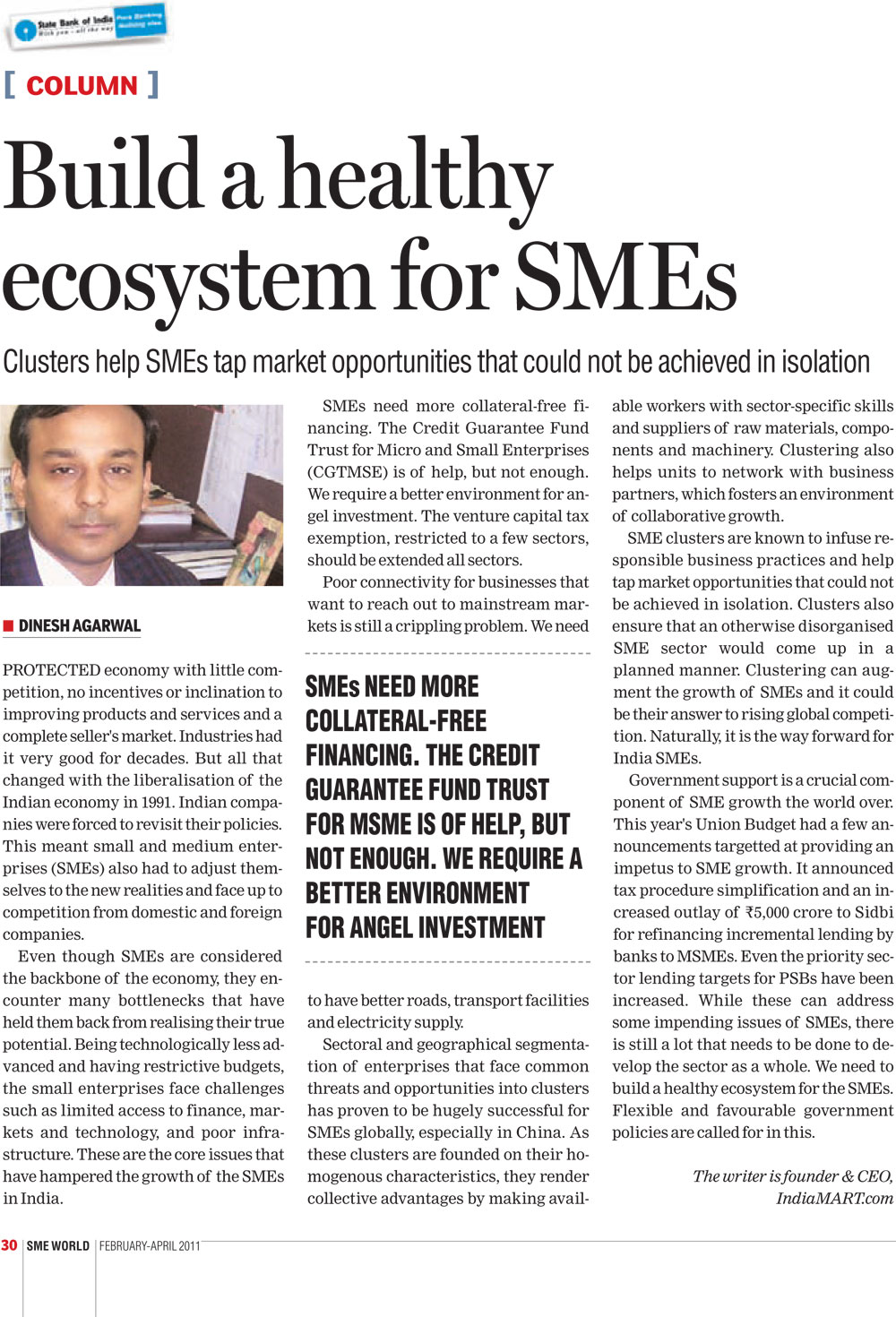Protected economy with little competition, no incentives or inclination to improving products and services and a complete seller’s market. Industries had it very good for decades. But all that changed with the liberalisation of the Indian economy in 1991. Indian companies were forced to revisit their policies. This meant small and medium enterprises (SMEs) also had to adjust themselves to the new realities and face up to competition from domestic and foreign companies.
Even though SMEs are considered the backbone of the economy, they encounter many bottlenecks that have held them back from realising their true potential. Being technologically less advanced and having restrictive budgets, the small enterprises face challenges such as limited access to finance, markets and technology, and poor infrastructure. These are the core issues that have hampered the growth of the SMEs in India.
SMEs need more collateral-free financing. The Credit Guarantee Fund Trust for Micro and Small Enterprises (CGTMSE) is of help, but not enough. We require a better environment for angel investment. The venture capital tax exemption, restricted to a few sectors, should be extended all sectors.
Poor connectivity for businesses that want to reach out to mainstream markets is still a crippling problem. We need to have better roads, transport facilities and electricity supply.
Sectoral and geographical segmentation of enterprises that face common threats and opportunities into clusters has proven to be hugely successful for SMEs globally, especially in China. As these clusters are founded on their homogenous characteristics, they render collective advantages by making available workers with sector-specific skills and suppliers of raw materials, components and machinery. Clustering also helps units to network with business partners, which fosters an environment of collaborative growth.
SME clusters are known to infuse responsible business practices and help tap market opportunities that could not be achieved in isolation. Clusters also ensure that an otherwise disorganised SME sector would come up in a planned manner. Clustering can augment the growth of SMEs and it could be their answer to rising global competition. Naturally, it is the way forward for India SMEs.
Government support is a crucial component of SME growth the world over. This year’s Union Budget had a few announcements targetted at providing an impetus to SME growth. It announced tax procedure simplification and an increased outlay of R5,000 crore to Sidbi for refinancing incremental lending by banks to MSMEs. Even the priority sector lending targets for PSBs have been increased. While these can address some impending issues of SMEs, there is still a lot that needs to be done to develop the sector as a whole. We need to build a healthy ecosystem for the SMEs. Flexible and favourable government policies are called for in this.
The writer is founder & CEO, IndiaMART.com
Read more at http://www.financialexpress.com/news/Build-a-healthy-ecosystem-for-SMEs/769618/


